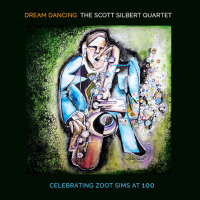Home » Jazz Articles » Kent Carter
Jazz Articles about Kent Carter
Kent Carter

by Clifford Allen
There are those improvisers who find Europe both a financially more stable climate as well as an aesthetic challenge. Steve Lacy and his regular bassist for almost 20 years, Kent Carter, are a prime example. Carter, while certainly his own musician with a unique conception, is in some ways inextricably tied to Lacy, for the path to musical freedom was reached through the open door of European improvisation. Carter was born June 14, 1939 in New Hampshire, ...
Continue ReadingKent Carter: Beauvais Cathedral (1974-75)

by AAJ Staff
It used to be a very rare event for a bassist to make a solo record. Now things have changed a bit, but Beauvais Cathedral takes the listener back to the day. This disc is not exactly a solo bass disc (3 tracks are solo bass and one is solo cello; the rest are higher-order units) but it conveys a strong sense of single- mindedness and direction. Kent Carter's first experiments in this realm from 1974-75 portray a clever and ...
Continue ReadingKent Carter & Albrecht Maurer: The Juillaguet Collection

by Glenn Astarita
Bassist Kent Carter moved from the United States to Europe in the 60’s which has led him on somewhat of a storybook course through the British Free-Jazz movement, stints with Steve Lacy, Paul Bley and many others. Here, the master bassist performs a series of duets with the equally adept violinist Albrecht Maurer taking place at Carter’s recording studio in the quaint town of “Juillaguet”, which appropriately translates into The Juillaguet Collection.
Throughout these nine pieces, Carter and Maurer exhibit ...
Continue ReadingKent Carter / Albrecht Maurer: The Juillaguet Collection

by Robert Spencer
Free improvisations that are stunning in their richness and melodic tonalities. Bassist Kent Carter, a veteran of Steve Lacy's Seventies groups, and violinist Albrecht Maurer obviously know each other very well. The music they make together is full of “conventional" harmonies as much as it is of dissonance, so that these pieces sound classically designed and wide-ranging, as if Stravinsky or Mahler had suddenly taken up free improvisation.
Each is a lovely little piece, with the longest (and one of ...
Continue Reading















